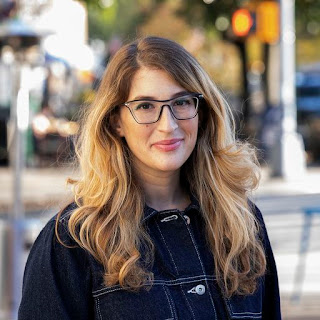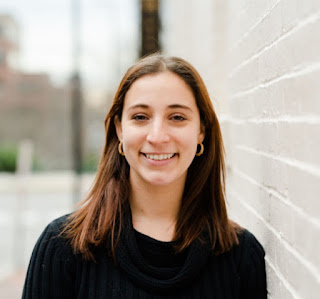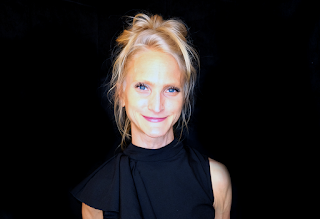There was a time when Rolling Stone Magazine was the ultimate arbiter of quality in popular music. Casey Kasam just covered the Top 40. Rolling Stone told its readers what songs were worth a listen and a purchase.
For decades and for millions, the TV Guide was the gospel of what's worth watching on the TV. If a star of a show was featured on the cover of the TV Guide, ratings success would almost always follow.
With movies, it was Siskel and Ebert with their thumbs up and thumbs down on movies for more than two decades. Forget about Rotten Tomatoes, Siskel and Ebert could single-handedly make or break a newly released film.
How about podcasting? Who are the voices we can trust? What journalists, critics, podcasters, and even radio futurologists can we rely upon to guide listeners toward podcasts worth "ear-time" and, at the same time, hold the podcasting industry accountable for missteps, acts of intolerable greed, trends toward corporatization and monopoly, and bad acts by big tech?
The people mentioned below do not make a comprehensive list of podcast thought leaders. It's a start. It's simply based on my observations of the podcasting world. So if someone is omitted that is considered to be the GOAT of podcasting, please be kind. We will get around to others.
I freely admit that as the manager of the Podcast Reports blog on Blogger and the Ear Worthy publication on Medium (book of the same name on Amazon--shameless plug of which I should be pilloried), my view of podcasting is not exactly 360 degrees. It's more like squinting one eye through a WWII submarine periscope.
So here goes.
Ashley Carman
Carman currently writes a column for Bloomberg about podcasting, and it's quite simply terrific. Ashley Carman is a former Verge senior reporter who covered podcasting and audio. She also wrote Hot Pod, the podcast industry's highly influential newsletter.
Carman writes with wit, a lucid sensibility and an aversion for corporate bullying in podcasting. She's not afraid to castigate behemoths like Apple, Amazon, and Spotify without plunging into a sinkhole of anti-capitalist, populist tripe.
Carman now works for Bloomberg, and she has already made a measurable impact in a more visible bird's nest like Bloomberg.
So far in her Bloomberg column, Carman has broken an explosive story about guests on some podcasts paying up to $50,000 to appear on popular shows. Carman notes that critics call it “payola,” and says listeners deserve better disclosure of promotional ties. It's like a sleep expert guesting on a podcast and talking about the importance of the right pillow for more restorative sleep. Then listeners discover that the guest is simply disguising a commercial for a pillow inside an informational segment of a podcast.
Carman has repeatedly raised red flags about the concentration of power in podcasting and the litany of miscues by Spotify (oh, there are so many), Apple (their podcast app still sucks), Amazon (don't invade podcasting like you did book selling), and the torrent of podcasts in the pipeline.
Carman's columns often report on podcasting business trends and acquisitions. When The Obamas' podcast company Higher Ground left Spotify for Audible, Carman reported, "The partnership turned south over the years, however, after both companies disagreed on strategy." This in contrast to the less accurate, more massaged releases by both Spotify and The Obamas'.
Check out Ashley Carman on Bloomberg.

Bloomberg journalist Ashley Carman
Arielle Nissenblatt
If Ashley Carman is the Woodward & Bernstein of podcasting, Arielle Nissenblatt is podcasting's artistic muse.
While there are many people who are in love with being in the podcasting industry, Nissenblatt loves podcasting. Here is her short origin story: "I was
stuck in traffic one day in Los Angeles and realized that podcasts were
helping me through the commute. Though I loved her five favorite
podcasts, I wanted more. I asked friends to share their favorites,
and their friends to share their favorites. Quickly, the movement grew.
Now, we send a weekly email with a theme and five podcasts on that theme
-- each week curated by a different person -- to thousands around the
world."
As a consequence, Nussenblatt founded EarBuds Podcast Collective in 2017. EarBuds is a weekly podcast recommendation engine that sends a newsletter with a theme and five podcast episodes on that theme, and each week is curated by a different person.
EarBuds Podcast Collective has a lot of going for it. First, they have an extensive, six-year archives of podcast recommendations. The recommendations are organized by year and then by topic. They are easily searchable.
Second, many podcast recommendation destinations tend to offer listeners podcasts by a strict category regimen. You, know, best technology podcasts, best movie podcasts, best politics podcasts, best true-crime podcasts. It's all very Apple-centric category-driven.
EarBuds Podcast Collective explodes the category system listeners have become comfortable with due to Apple's podcast section of iTunes.
Even her newsletter has a theme for its readers. Last week, it was self-acceptance and self-love and the curator Melissa Monte chose five podcasts with one being Mind Love.
Nissenblatt also organizes podcasters to enable their collective voice be heard on social, legal and cultural issues. In light of the U.S. Supreme Court’s decision to overturn Roe, Nissenblatt and a group of podcasters and writers were instrumental in organizing a host-read ad campaign to stand in opposition.
Nissenblatt is also a podcasting consultant, but also thrives as a cheerleader and missionary for podcasting. Recently, she has worked with Chris Colbert, CEO of DCP Entertainment, a podcast network that gives a platform to people of color, women and LGBTQ+ communities, as well as highlighting stories around mental health, disability and overcoming adversity.
Check out EarBuds Podcast Collective. The curated podcast recommendations section is like taking a virtual reality tour through an indie bookstore. Every shelf offers new surprises. In Nissenblatt's recommendations section, your ears will delight in the new sounds you can explore.

EarBuds Podcast Collective Founder Arielle Nissenblatt
James Cridland
James Cridland was born in the United Kingdom, but lives in Australia. The country happens to be the origin point of two of my favorite podcasts, Science Vs and All In The Mind. Australia is a hotspot for podcasts, and ABC (Australian Broadcasting Corporation) seems to be an incubator for some terrific podcasts.
Anyway, Cridland is the Editor of Podnews, a daily podcast newsletter with about 25,000 subscribers. I can describe the newsletter as the podcasting version of the Hollywood Reporter for TV and movies.
Podnews appeals to a broad audience, which is a key element in its appeal. If you're a podcaster, read Podnews for updates on everything from news such as Spotify's new filters for podcasts and music, podcast monetization such as programmatic advertising, events such as Podcast movement in Dallas in late August, and tips and tricks such as the recent article on the five most common launch mistakes.
The newsletter also has a classified section for those looking for work in podcasting called PodJobs, a technology section, top most listened to podcasts daily, and a podcast recommendation section.
Cridland is also a widely sought after speaker and terms himself a radio futurologist, where he posts his thoughts and links to 3,599 people focusing on the future of radio and audio.
Cridland launched the world’s first streaming radio smartphone app in March 2005, for the original Virgin Radio in London, launching daily podcasts earlier that year.
In 2007 he joined the BBC working on the BBC iPlayer for radio, achieving a dramatic increase in the service’s audio quality.
Cridland is an excellent caretaker of podcasting. He is protective of its uniqueness, angered when it is being exploited either by big business or big-tech, and thoughtful on the common-sense steps necessary to sustain growth without destroying its sonic soul.You can subscribe to Podnews here. You don't have to be a podcaster to enjoy the newsletter, because it has relevance for ardent listeners.

Podnews editor and radio futurologist James Cridland.
Lauren Passell
Lauren Passell is the founder of Tink Media, a podcast marketing and PR company that has helped shows like Dani Shapiro’s Family Secrets, American Hysteria, Our Body Politic, PEOPLE magazine’s PEOPLE Every Day, and more.
Passell isn't simply another marketing expert pushing podcasts as part of her job. Unlike marketing fast food, where you hold your nose and hope the customers don't realize you're pitching them an early death, Passell pitches a product that can improve lives. Plus, she is infatuated with podcasts and podcasters. You can get that vibe from her newsletter called, simply enough, Podcast The Newsletter.
Here is the intro to her newsletter: "Each issue of Podcast The Newsletter includes a HUGE list of my recommendations, a little note from my heart, and an interview with someone I’m obsessed with in the podcast community–someone I think you should be obsessed with, too"
I think what makes Passell so important to podcasting and its early roots of bootstrapping is her generosity in interviewing and spotlighting podcasts and their podcasts that normally wouldn't get exposure.
Beck Media does an excellent job promoting podcasts, but it typically works for large companies. Passell's passion for podcasting comes through loud and clear like a church bell calling the faithful.
For example, in a recent newsletter, Passell interviewed Dawnie Walton and Deesha Philyaw, the co-hosts of Ursa Short Fiction, which celebrates the best fiction writers and their work. It's a podcast by two black writers that combats the view that short stories don't sell. The show is funny, incisive and a joy to your ears. Without Passell, I would not know it existed.
Passell also interviewed Camila Victoriano, who is the co-founder & Head of Partnerships of Sonoro, which is a podcast network that collaborates with leading and emerging Latinx storytellers – writers, producers, and directors – from over a dozen countries to develop original franchises in English, Spanish, and Spanglish.
In the interview, Victoriano discusses her latest podcast, an audio drama that combines DNA from telenovela, Korean Drama and romcoms called Love and Noraebang.
It's Passell who opens our eyes to podcasts we would not have considered. A few months ago, she recommended Vanishing Postcards, a podcast that invites listeners to ride shotgun on a road trip exploring the traditions, hidden dives, and offbeat attractions that can be found by exiting the interstate. Guided by Texas native Evan Stern, the podcast is a touching, humorous, and enriching experience that is part travelogue, oral history, and valentine to American culture.
Check out Lauren Passell for her recommendations on podcasts you've never heard of but once you listen to them, your ears will be crying for "more."

Tink Media founder and Podcast The Newsletter Editor Lauren Passell.
**************************
Podcasting is blessed with many people who are stewarts of the medium. Today, we've touched on four. There will be more stories on thought leaders in podcasting such as Shreya Sharma. Keep in mind that a thought leader is not synonymous with influential. Spotify CEO Daniel Elk is influential. A thought leader? Let's give that a second thought. How about the big podcast networks? Thought leaders?
For those networks that overwhelm the industry and listeners with so many true-crime podcasts that plagiarism is the result, maybe not so much. More celebrity or social media influencer podcasts? That's what daytime TV talk shows are for? Extremist podcasts advocating violence, hate, and division (the Steve Bannon dinner special)? I want to feel a bond with all Americans, not finish a podcast and simmer with hate, resentment, and grievance.
Podcasting needs to be protected. Not by the government. Please. No, by the people who produce the content. From the podcasters who get millions of downloads like Joe Rogan (please stop with the Alex Jones-type interviews) to podcasters like Ellen Scanlon of the How To Do The Pot podcast, which demystifies cannabis for women through joyful, narrative storytelling and informed recommendations and advice.
Your ears are just as important as your eyes. Podcasting should always remember that.

Comments
Post a Comment
Thank You for your input and feedback. If you requested a response, we will do so as soon as possible.